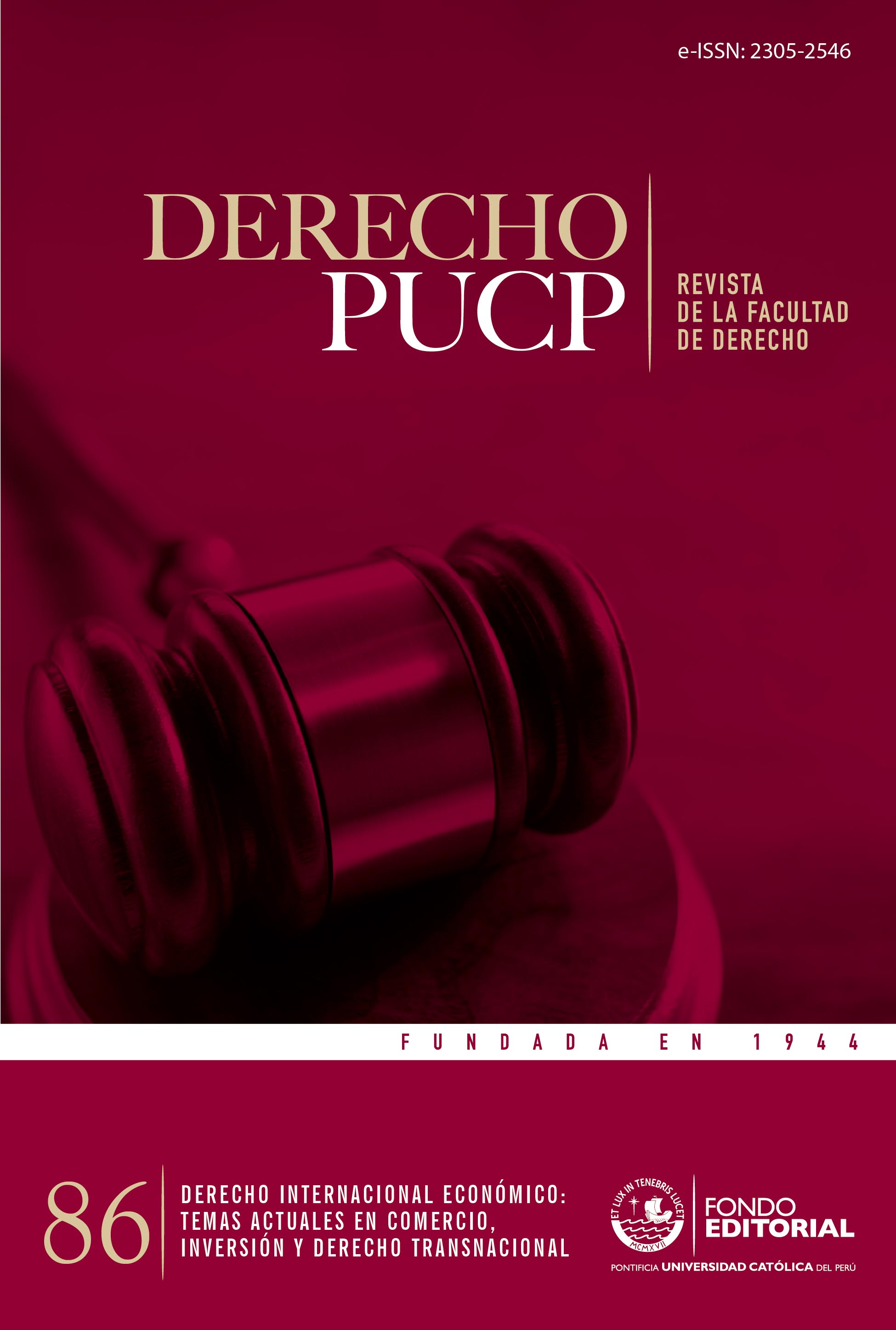La Alianza del Pacífico y el CPTPP: ¿alternativas para la solución de diferencias ante la OMC?
DOI:
https://doi.org/10.18800/derechopucp.202101.002Palabras clave:
Organización Mundial del Comercio (OMC), Entendimiento sobre Solución de Diferencias (ESD), Acuerdo comercial regional (ACR), Alianza del Pacífico (AP), Tratado Integral y Progresista de Asociación Transpacífico (CPTPP, CPTPPA, TPP-11, TPP11, TPP, TPPA)Resumen
El sistema de solución de diferencias de la Organización Mundial del Comercio (OMC) está en crisis desde que su Órgano de Apelación dejó de funcionar en diciembre de 2019. Como consecuencia, el Órgano de Solución de Diferencias de la OMC no puede adoptar el informe de un grupo especial si una parte en la diferencia notifica su intención de apelar. En ese contexto, el presente artículo analiza qué factores pueden influir en la decisión de las partes reclamantes de recurrir a dos acuerdos comerciales regionales (ACR), la Alianza del Pacífico y el Tratado Integral y Progresista de Asociación Transpacífico (CPTPP), como foros alternativos a la solución de diferencias de la OMC. Tras un análisis comparativo de las normas de solución de diferencias en ambos ACR, y en el Entendimiento sobre Solución de Diferencias de la OMC, concluimos que los factores procesales e institucionales serán posiblemente relevantes para las partes reclamantes que deseen seleccionar un foro de solución de diferencias.
Descargas
Descargas
Publicado
Cómo citar
Número
Sección
Licencia
Derechos de autor 2021 Natalia Gallardo-Salazar, Jaime Tijmes-IHL

Esta obra está bajo una licencia internacional Creative Commons Atribución 4.0.




